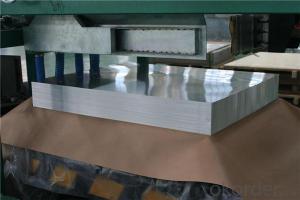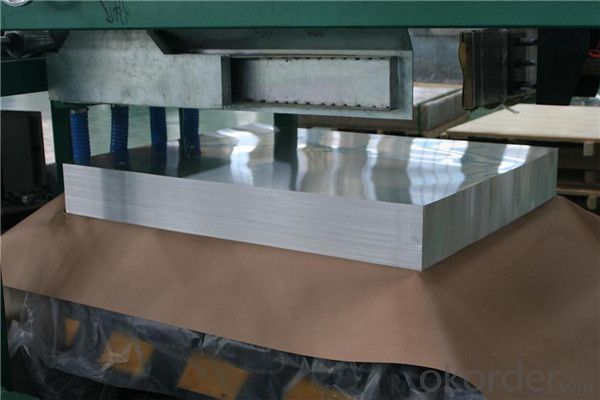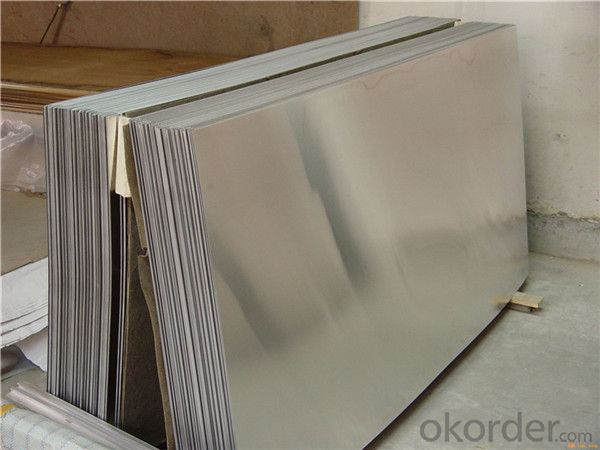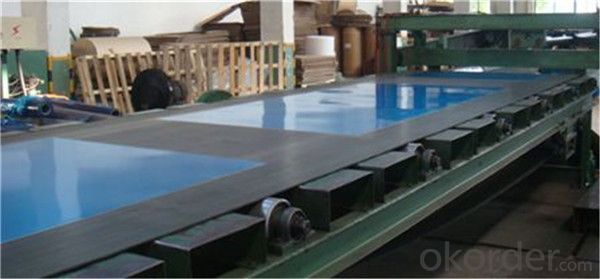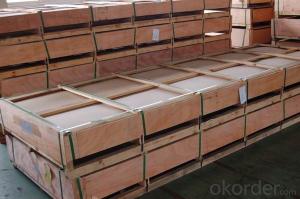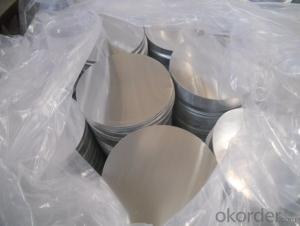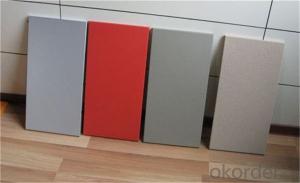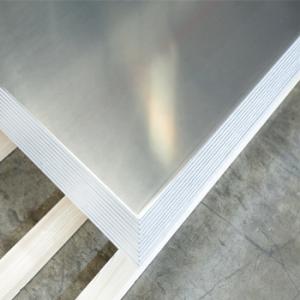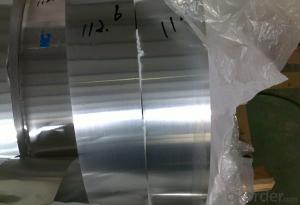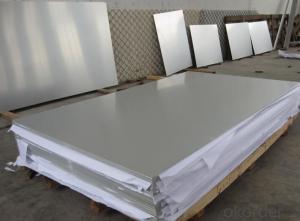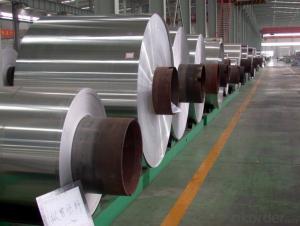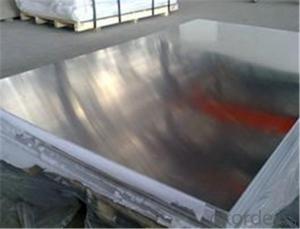Sheets of Aluminum Foil - Aluminum Sheet Construction T3 5083 0.05mm Thickness
- Loading Port:
- Shanghai
- Payment Terms:
- TT OR LC
- Min Order Qty:
- 5 m.t.
- Supply Capability:
- 100000 m.t./month
OKorder Service Pledge
OKorder Financial Service
You Might Also Like
Specification
Specifications
Grade
| 1000 Series: 1050 1060 1070 1100 1200 1235 etc. 3000 Series: 3003 3004 3005 3104 3105 3A21 etc. 5000 Series: 5005 5052 5083 5086 5154 5182 5251 5754 etc. 6000 Series: 6061 6063 6082 6A02 etc. 8000 Series: 8006 8011 8079 etc. |
Thickness | 0.2~320mm |
Width | <2800mm< span=""> |
Color | Metallic, Solid, RAL or by customer requirements |
Coating paint: | PVDF(Polyvinylidene Fluoride), PE(Polyester ) |
Coating thickness | as per customer’s request |
Gloss | 10-90%(EN ISO-2813:1994) |
Total coating thick | Polyester18~27micron(EN ISO-2360:1995) PVDF27 ~35micron(EN ISO-2360:1995) |
Coating hardness | 2H |
Protective film | PVC film, Colorless transparent or White-black |
Adhesion | 5B (EN ISO-2409:1994) |
Impact resistance | No cracking and peeling (A.S.T.M D2794-1993) |
Flexibility (T-bend) | 0T- 2T |
Temper | H16, H18, H24, H26, H26 |
Certification | ISO9001:2000, CE, SGS |
Payment | L/C ,T/T |
Brief Introduction for Cold Rolled Steel Coil
Cold Rolled Steel Coil is steel that has been worked below its recrystallization temperature by passing it between a pair of rollers. Recrystallization temperature is the temperature at which grains in the lattice structure of the metal have been rearranged, leaving it free of strain and deformations. Cold Rolled Steel Coil is pre-treated before being cold rolled with a process known as pickling, which uses strong acids to remove scale and other impurities. The Cold Rolled Steel Coil is then passed through rollers to reduce its thickness. Most cold rolling takes place in multiple passes and as the size of the Cold Rolled Steel Coil is further reduced, its strength and hardness both increase, but its ductility decreases. After cold rolling, heating the metal up in a process known as annealing can restore some of its ductility. The final Cold Rolled Steel Coil may be manufactured in the form of sheets, strips, bars, or other forms.
FAQ
1. How can I get some samples?
We are honored to offer you samples. New clients are expected to pay for the courier cost. The samples are free for you.
2 Do you have any certificates?
Our products passed inspection of SGS, FDA, and CE Quality is priority! Every worker keeps the QC from the very beginning to the very end, Quality control department especially responsible for quality checking in each process.
3 Can your factory print or emboss my logo on the goods?
Yes, we can print or emboss the logo on the goods or their packing box.
4 What information should I let you know if I want to get a quotation?
1) The specification of products (length x width x thickness);
2) The temper and alloy.
3) The final product you will use to be made
4 It will be better if you can show us the pictures or design sketch. Samples will be best for clarifying. If not, we will recommend relevant products with details for reference.We usually produce goods based on customers
Samples or based on customers’ picture, logo, sizes etc.
Our Services
1. Reasonable production arrangement to make delivery very fast;
2. We are able to provide leading tolerances, metallurgical assistance, quick and reliable delivery, samples for new products, etc.
3. We have the strong capability to meet your particular requirement for the products.
4.To guarantee the quality of the products we can meet most of the standards all over the world.
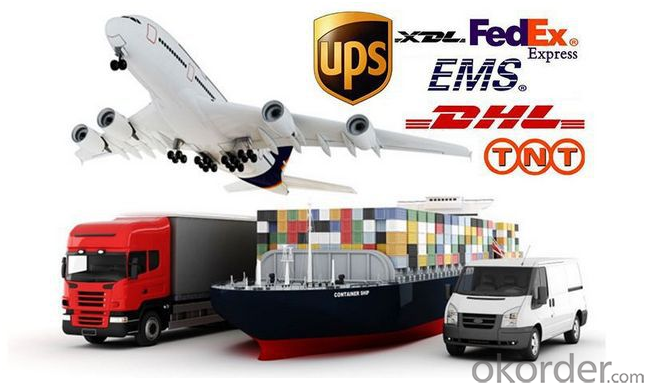
Photos of products
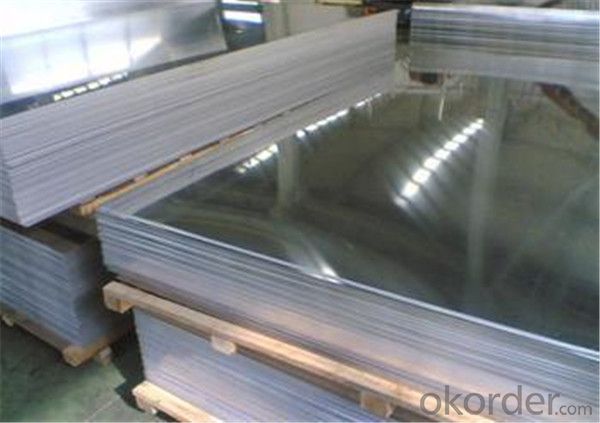
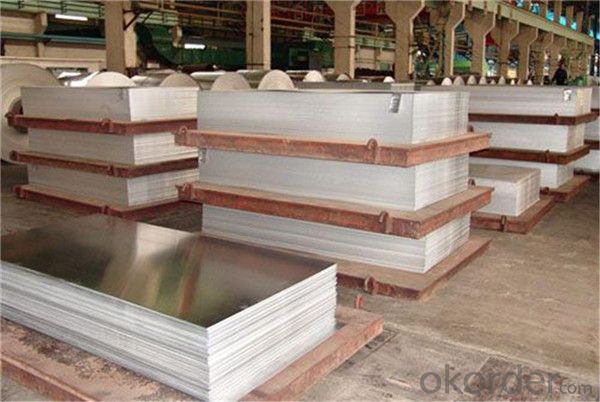
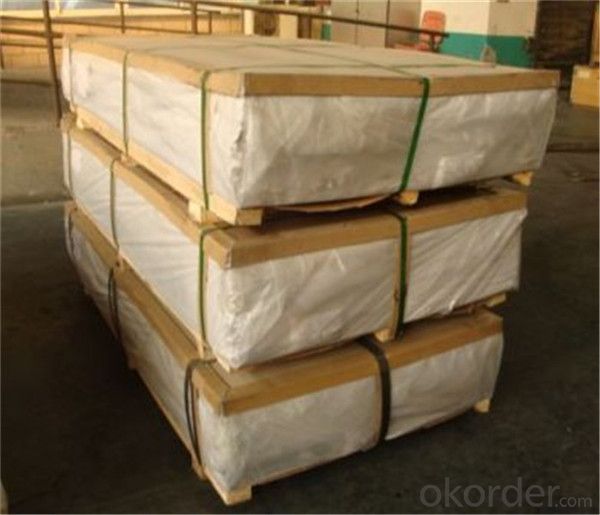
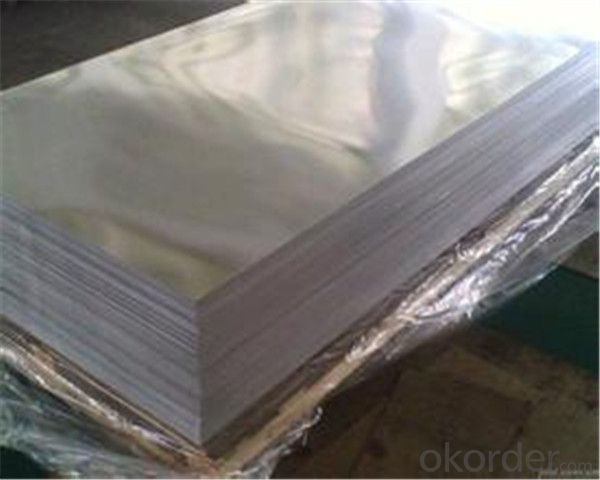
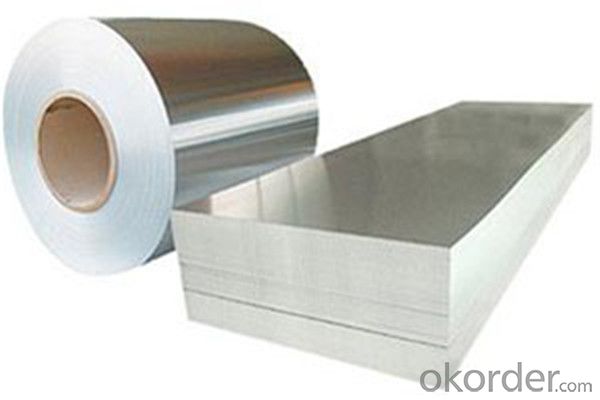
- Q: Can aluminum sheet be painted or coated after fabrication?
- Indeed, it is possible to paint or coat aluminum sheet after it has been fabricated. Aluminum, being a versatile material, lends itself easily to being painted or coated in order to improve its appearance or provide extra protection. The procedure involves preparing the surface through thorough cleaning and the elimination of any impurities, followed by the application of a primer to enhance adhesion. Once the primer has dried, a topcoat of paint or coating can be applied to achieve the desired color or finish. The choice of paint or coating will depend on the intended usage and the specific requirements of the application. All in all, painting or coating aluminum sheet after fabrication is a widespread practice that can significantly enhance its aesthetics and durability.
- Q: Can aluminum sheets be used as heat shields?
- Yes, aluminum sheets can be used as heat shields. Aluminum has excellent thermal conductivity, meaning it can efficiently conduct and transfer heat away from the source. Additionally, aluminum has a high melting point, allowing it to withstand high temperatures without warping or deforming. These properties make aluminum sheets an ideal choice for heat shield applications, such as protecting sensitive components or structures from heat damage in various industries including automotive, aerospace, and industrial applications. Furthermore, aluminum is lightweight and relatively easy to shape, making it a practical choice for heat shields that need to be installed in tight spaces or require complex designs. Overall, the use of aluminum sheets as heat shields offers effective thermal protection while providing durability, versatility, and cost-effectiveness.
- Q: Are the aluminum sheets suitable for marine vessel construction?
- Marine vessel construction greatly benefits from the utilization of aluminum sheets. With its exceptional corrosion resistance properties, aluminum proves itself as the ideal material for saltwater environments. Its lightweight nature combined with its strength strikes a perfect balance between durability and weight reduction, resulting in improved fuel efficiency and increased payload capacity. Moreover, shipbuilders favor aluminum due to its ease of fabrication, welding, and repair. Its high strength-to-weight ratio and ability to withstand extreme temperatures also render it suitable for various marine applications, including hulls, decks, superstructures, and other structural components. All in all, the use of aluminum sheets in marine vessel construction presents numerous advantages, establishing it as a favored choice within the maritime industry.
- Q: What are the different types of aluminum sheets available in the market?
- There are several different types of aluminum sheets available in the market, including plain aluminum sheets, tread plates, perforated aluminum sheets, and decorative aluminum sheets.
- Q: How is the thickness of an aluminum sheet measured?
- The thickness of an aluminum sheet can be measured using various methods. One common technique is to use a micrometer or caliper, which are precision measuring tools. The micrometer is placed on one end of the sheet and slowly closed until it touches the other end, providing an accurate measurement of the thickness. This method is effective for measuring thin aluminum sheets. For thicker sheets, a thickness gauge can be used. It consists of a small handheld device with a probe that is pressed against the sheet's surface. The gauge then displays the thickness reading on a screen. This method is especially useful for measuring thicker sheets where a micrometer or caliper may not be suitable. Another way to measure the thickness of an aluminum sheet is by using an ultrasonic thickness gauge. This tool emits ultrasonic waves from a transducer, which are then reflected back from the sheet's surface. By calculating the time taken for the waves to travel and return, the gauge can determine the thickness of the sheet with high accuracy. This method is particularly effective for measuring the thickness of large or irregularly shaped aluminum sheets. In summary, the thickness of an aluminum sheet can be measured using various tools such as a micrometer, caliper, thickness gauge, or ultrasonic thickness gauge, depending on the thickness and size of the sheet.
- Q: Are the aluminum sheets suitable for manufacturing electrical busbars?
- Indeed, electrical busbars can be manufactured using aluminum sheets. The remarkable electrical conductivity and lightweight nature of aluminum render it a preferred option for busbars. It effectively carries substantial electrical currents and boasts low resistance, making it exceptionally suitable for transporting electricity in power distribution networks. Moreover, aluminum sheets can be effortlessly manipulated and molded into diverse forms and dimensions, granting the opportunity for personalized designs and streamlined integration into electrical systems.
- Q: Can the aluminum sheets be used in marine environments?
- Indeed, aluminum sheets are suitable for deployment in marine settings. Owing to its exceptional resistance to corrosion, aluminum stands as a favored selection for marine utilization. Unlike its counterparts, aluminum develops a safeguarding oxide layer when it comes into contact with oxygen, thereby inhibiting further corrosion. Consequently, it proves to be the perfect choice for employment in environments saturated with saltwater, where the probabilities of rusting and corrosion are notably elevated. Moreover, aluminum boasts attributes such as its lightweight nature, durability, and an outstanding strength-to-weight ratio, rendering it a fitting option for an array of marine applications, encompassing boat hulls, ship construction, offshore platforms, and an array of other marine structures.
- Q: I need to coat a piece of aluminum with aluminum oxide. Can I do it by just attaching aluminum to an electrode and put it into some water with the other electrode? I know you can make iron oxide that way, but will aluminum work? If it will work, which electrode should I put the aluminum on?
- This Site Might Help You. RE: Can you make aluminum oxide by electrolysis? I need to coat a piece of aluminum with aluminum oxide. Can I do it by just attaching aluminum to an electrode and put it into some water with the other electrode? I know you can make iron oxide that way, but will aluminum work? If it will work, which electrode should I put the aluminum on?
- Q: I've heard certain eyeliners contain lead and that it's a harmful (cancerous) ingredient. I use Urban Decay's 24/7 eyeliner and on the box it says it contains aluminum powder. Is that another word for lead? If not, is aluminum powder harmful too? Thanks!
- Aluminium is aluminium. Aluminium is not lead, no more than copper is gold. Those are different metals. Due to its toxicity, there is zero chance any lead would be in commercially available, genuine cosmetics. Some claim that aluminium may cause Alzheimer's disease, but the link has not been proved, and would have to involve actually eating the stuff in large amount.
- Q: Are 101 aluminum sheets suitable for mold making?
- No, 101 aluminum sheets are generally not suitable for mold making. While aluminum is a commonly used material for making molds due to its durability and heat resistance, 101 aluminum is a low-strength alloy that may not meet the requirements for mold making. For such purposes, it is recommended to use aluminum alloys with higher strength and hardness, such as 6061 or 7075 alloys. These alloys offer better resistance to wear, deformation, and heat, making them more suitable for creating molds that can withstand the pressures and temperatures involved in the molding process.
Send your message to us
Sheets of Aluminum Foil - Aluminum Sheet Construction T3 5083 0.05mm Thickness
- Loading Port:
- Shanghai
- Payment Terms:
- TT OR LC
- Min Order Qty:
- 5 m.t.
- Supply Capability:
- 100000 m.t./month
OKorder Service Pledge
OKorder Financial Service
Similar products
Hot products
Hot Searches
Related keywords
